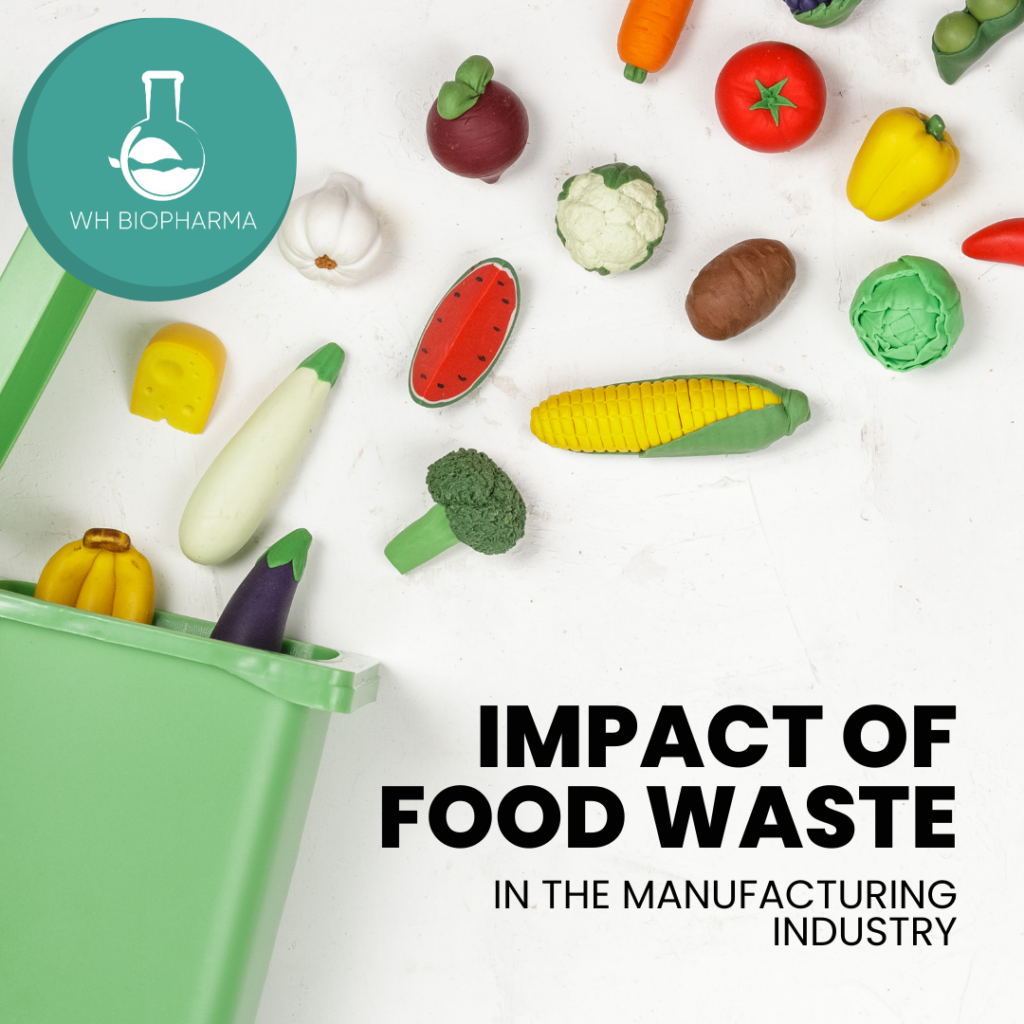Food waste is a pressing global issue with significant economic, environmental, and social implications. In the manufacturing sector, where large quantities of food are processed and produced, addressing food waste is crucial for sustainable and responsible operations. This blog post explores the best practices and strategies that food manufacturers can adopt to tackle food waste effectively.
Implement Lean Manufacturing Principles
Adopting lean manufacturing principles can help minimize waste throughout the production process. By optimizing production flows, reducing overproduction, and implementing just-in-time inventory management, manufacturers can avoid excessive food waste and improve overall efficiency.
Conduct Comprehensive Waste Audits
Performing regular waste audits enables manufacturers to identify specific areas where food waste occurs most frequently. By analyzing these findings, companies can pinpoint opportunities for waste reduction and implement targeted solutions tailored to their operations.
Optimize Inventory Management
Efficient inventory management plays a vital role in reducing food waste. Manufacturers should implement robust tracking systems and real-time monitoring of inventory levels to prevent overstocking and product expiration. Adopting first-in, first-out (FIFO) principles ensures that older products are used or sold before newer ones, reducing the risk of spoilage and waste.
Collaborate with Suppliers and Farmers
Establishing strong partnerships with suppliers and farmers can contribute to reducing food waste upstream in the supply chain. Engage in open communication and work together to improve forecasting accuracy, share data, and align production schedules to match demand effectively.
Invest in Smart Technologies
Leveraging smart technologies such as sensors, data analytics, and machine learning can revolutionize food waste reduction efforts. These technologies enable real-time monitoring of storage conditions, expiration dates, and product quality, providing actionable insights for timely decision-making and waste prevention.
Implement Quality Control Measures
Stringent quality control measures help ensure that only high-quality products reach consumers. Implementing rigorous inspection processes and utilizing advanced quality control techniques can minimize the occurrence of defects, thereby reducing the likelihood of wasted products.
Embrace Product Diversification and Repurposing

Food manufacturers can explore opportunities to diversify their product offerings by repurposing ingredients or byproducts that might otherwise go to waste. Innovative approaches can transform food waste into new, marketable products or ingredients, reducing overall waste and generating additional revenue streams.
Educate and Train Employees
Creating a culture of waste reduction requires educating and training employees at all levels. Conduct regular workshops and training sessions to raise awareness about the importance of food waste reduction, teach proper handling and storage techniques, and empower employees to contribute to waste prevention efforts.
Donate Surplus Food
Establish partnerships with local food banks, shelters, or charitable organizations to donate surplus food that is safe for consumption but not suitable for sale. These collaborations not only help fight hunger but also divert food from ending up in landfills.
Monitor and Measure Progress
Tracking and measuring food waste reduction efforts is crucial to gauge the effectiveness of implemented strategies. Set specific targets, monitor progress, and regularly analyze data to identify areas for improvement. Sharing success stories and progress updates can also inspire others within the industry to take action.
Food manufacturers have a significant role to play in reducing food waste and building a more sustainable future. By implementing these best practices and strategies, manufacturers can not only minimize waste but also improve operational efficiency, reduce environmental impact, and contribute to a more responsible and resilient food system for generations to come. Together, we can make a substantial difference in combating food waste and creating a more sustainable food manufacturing industry.
Impact of Food Waste in the Manufacturing Industry
Food waste in the manufacturing industry has significant economic, environmental, and social impacts. Understanding these impacts is crucial for recognizing the urgency of addressing food waste and implementing effective solutions. Here are the key impacts of food waste in the manufacturing industry:

Economic Impact
Food waste poses a substantial financial burden on the manufacturing industry. When edible food goes to waste, manufacturers incur losses in raw materials, labor, energy, and other production costs. Moreover, disposing of wasted food often involves additional expenses, such as transportation and landfill fees. These costs directly impact profitability and reduce overall efficiency in the manufacturing process.
Environmental Impact
Food waste in the manufacturing industry has significant environmental consequences. When food ends up in landfills, it decomposes and releases harmful greenhouse gases, including methane, a potent contributor to climate change. Additionally, the resources invested in producing, processing, and transporting wasted food are squandered. These resources include water, energy, fertilizers, and land, all of which contribute to environmental degradation and loss of biodiversity.
Social Impact
Food waste in the manufacturing industry has social implications that extend beyond the manufacturing sector itself. With limited access to nutritious food, many communities suffer from food insecurity and hunger. When food is wasted at the manufacturing level, it represents missed opportunities to provide nourishment to those in need. Additionally, food waste exacerbates social inequalities, as valuable resources are wasted while a significant portion of the population remains food insecure.
Addressing food waste in the manufacturing industry can have positive impacts across these areas. By reducing waste, manufacturers can improve their profitability and operational efficiency. Environmentally, preventing food waste helps conserve resources, reduce greenhouse gas emissions, and mitigate climate change. From a social perspective, reducing food waste allows for better utilization of resources, improves access to food for vulnerable populations, and promotes a more equitable food system.
Recognizing the impact of food waste in the manufacturing industry highlights the urgency for implementing waste reduction strategies and embracing sustainable practices. By adopting innovative approaches, such as optimizing production processes, collaborating with suppliers, and promoting a culture of waste reduction, manufacturers can make a substantial difference in combating food waste and fostering a more sustainable and responsible food manufacturing industry.





